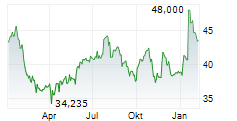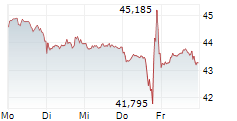
Germantown, Maryland, and Venlo, the Netherlands, June 27, 2024 (GLOBE NEWSWIRE) -- QIAGEN (NYSE: QGEN; Frankfurt Prime Standard: QIA) today announced that it welcomes new guidelines in the United States that recommend screening at-risk children of all ages for latent tuberculosis (TB) infection with modern blood-based tests such as QIAGEN's market-leading QuantiFERON-TB Gold Plus (QFT-Plus).
The new guidelines from the American Academy of Pediatrics (AAP) emphasize testing for TB with modern interferon-gamma release assays (IGRAs). The new standards were published in the academy's Red Book: 2024-2027 Report of the Committee on Infectious Diseases.
The new TB screening guidelines expand on the organization's previous IGRA recommendations and now cover children of all ages, including infants and children age 2 and under.
Up to 13 million people in the U.S. are estimated to have latent TB infections, and children are at increased risk for progression from infection to contagious active TB disease. Children are also commonly exposed to settings with a higher risk for TB transmission, such as schools and childcare centers.
The AAP's recommendations follow recently updated guidelines from the American College Health Association (ACHA) stating that IGRAs are preferred over the 120-year-old tuberculin skin test (TST) for most situations relevant to college health.
"I am pleased to see the American Academy of Pediatrics removing any age threshold for the use of IGRAs," said Dr. Lindsay Cameron, an AAP member, pediatric infectious disease physician and pediatrician in Houston, Texas. "The new guidelines resonate with the growing recognition by TB control experts of the value of using the most accurate diagnostic tests available. As part of our comprehensive efforts to eradicate this life-threatening disease, latent TB infection can be detected in at-risk children and adolescents and treated to prevent progression into active and contagious TB disease."
"Identifying TB infection in children is critical to prevent the spread of TB in the United States," said Jenny Howard, Vice President, Head of the Immune Response Franchise at QIAGEN. "The expanded AAP recommendations will lead to better detection of TB infection in young children so that they can benefit from preventive treatment. Our customers can now rely on QFT-Plus as the modern gold standard for blood-based tuberculosis detection for patients of all ages."
The updated childhood TB screening guidelines come as U.S. authorities are expanding the role of latent TB screening in national tuberculosis control efforts.
QIAGEN recently announced a partnership with the International Panel Physicians Association (IPPA) to support and educate panel physicians around the globe on new US CDC tuberculosis screening guidelines that require the use of IGRA tests to ensure a safe immigration process and support the global fight against TB.
Tuberculosis is a contagious bacterial infection spread primarily through coughing by patients with the active pulmonary form of the disease. One in four people worldwide are believed to have latent TB infections, with 5-10% of them expected at some point to progress to active TB disease. Screening for latent TB infection is therefore essential in the effort to end TB. According to the CDC, active TB cases in the U.S. increased 16% in 2023, the highest number of cases since 2012, highlighting the need for increased disease surveillance and testing. TB cases have been rising post-COVID-19 as public health authorities and primary care providers catch up to the "surveillance gap" caused by the COVID pandemic.
QuantiFERON-TB Gold Plus is the world's leading IGRA blood test, with millions of tests performed annually. It is established as a superior alternative to the dated TB skin test (TST), which is less effective in identifying TB infection in people who have received BCG vaccination, which is common for patients from high-TB-burden countries, and in patients who may be unlikely to return for TST interpretation. QuantiFERON-TB Gold Plus has helped patients and providers globally by reducing the number of visits to a single blood draw with a faster turnaround time. 70-80 million TB skin tests are performed each year globally, including 16-18 million in the U.S., with healthcare providers increasingly switching to modern IGRA tests.
To learn more about QuantiFERON-TB and tuberculosis control, please visit www.qiagen.com/EndTB.
About QIAGEN
QIAGEN N.V., a Netherlands-based holding company, is the leading global provider of Sample to Insight solutions that enable customers to gain valuable molecular insights from samples containing the building blocks of life. Our sample technologies isolate and process DNA, RNA and proteins from blood, tissue and other materials. Assay technologies make these biomolecules visible and ready for analysis. Bioinformatics software and knowledge bases interpret data to report relevant, actionable insights. Automation solutions tie these together in seamless and cost-effective workflows. QIAGEN provides solutions to more than 500,000 customers around the world in Molecular Diagnostics (human healthcare) and Life Sciences (academia, pharma R&D and industrial applications, primarily forensics). As of March 31, 2024, QIAGEN employed more than 5,900 people in over 35 locations worldwide. Further information can be found at https://www.qiagen.com.
Forward-Looking Statement
Certain statements contained in this press release may be considered forward-looking statements within the meaning of Section 27A of the U.S. Securities Act of 1933, as amended, and Section 21E of the U.S. Securities Exchange Act of 1934, as amended. To the extent that any of the statements contained herein relating to QIAGEN's products, timing for launch and development, marketing and/or regulatory approvals, financial and operational outlook, growth and expansion, collaborations, markets, strategy or operating results, including without limitation its expected adjusted net sales and adjusted diluted earnings results, are forward-looking, such statements are based on current expectations and assumptions that involve a number of uncertainties and risks. Such uncertainties and risks include, but are not limited to, risks associated with management of growth and international operations (including the effects of currency fluctuations, regulatory processes and dependence on logistics), variability of operating results and allocations between customer classes, the commercial development of markets for our products to customers in academia, pharma, applied testing and molecular diagnostics; changing relationships with customers, suppliers and strategic partners; competition; rapid or unexpected changes in technologies; fluctuations in demand for QIAGEN's products (including fluctuations due to general economic conditions, the level and timing of customers' funding, budgets and other factors); our ability to obtain regulatory approval of our products; difficulties in successfully adapting QIAGEN's products to integrated solutions and producing such products; the ability of QIAGEN to identify and develop new products and to differentiate and protect our products from competitors' products; market acceptance of QIAGEN's new products and the integration of acquired technologies and businesses; actions of governments, global or regional economic developments, weather or transportation delays, natural disasters, political or public health crises, and its impact on the demand for our products and other aspects of our business, or other force majeure events; as well as the possibility that expected benefits related to recent or pending acquisitions may not materialize as expected; and the other factors discussed under the heading "Risk Factors in our most recent Annual Report on Form 20-F. For further information, please refer to the discussions in reports that QIAGEN has filed with, or furnished to, the U.S. Securities and Exchange Commission.
Source: QIAGEN N.V.
Category: Corporate



